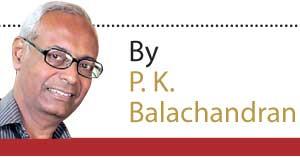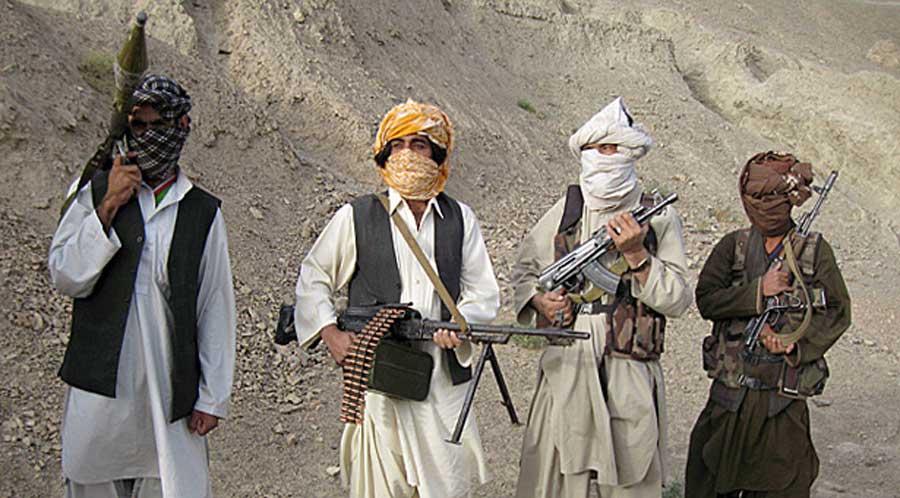Taliban militia
It wasn’t long ago that a cessation of hostilities and the ushering in of permanent peace were on the cards in chronically troubled Afghanistan. But these hopes have now receded with the various parties in the violent dispute refusing to bury the hatchet despite the urgency created by the coronavirus pandemic.

The rebel Taliban are making accusations of insincerity against the US and the US is castigating the Taliban for lying to the world and continuing to wage war when they are supposed to maintain a truce in the run up to talks with the established and elected regime in Kabul led by President Ashraf Ghani.
The Afghan government and the Taliban are still at odds over the exchange of prisoners. Afghan leaders President Ghani and his Chief Executive Officer (CEO) Abdullah Abdullah keep shifting their stand vis---vis each other, making it obvious that they are continuing their feud.
Under US pressure, President Ghani had offered Abdullah Abdullah the leadership of the all-Afghan peace council to be formed to negotiate a political settlement with the Taliban. CEO Abdullah Abdullah accepted the offer, also apparently under US pressure. But in the meanwhile, Ghani made some critical and controversial appointments in the government without taking Abdullah Abdullah into confidence. After other leaders appealed to Ghani to postpone the appointments, Ghani put off the appointments by five days. But it is not clear if Abdullah and Abdullah is on board. It is hoped that the US withdrawal of US$ 1 billion from its aid package to Afghanistan as a punishment for feuding, will force Ghani and Abdullah Abdullah to abandon their mutual animosity.
Taliban-US Row
In a statement issued on Sunday, a thoroughly frustrated Taliban said that the deal that they signed with the US on February 29 has been “violated” by the US and its allies. The rebels pointed to the delay in the release of 5,000 prisoners from Afghan government’s custody and also the attacks on Taliban targets in non-combat civilian areas. The Taliban claimed that it has reduced its attacks in cities and has abided by the agreement. They warned that they will attack outposts of the Afghan government “until there is a separate agreement on a ceasefire as a result of intra-Afghan negotiations”. This is indeed a severe condition.
The Afghan government had agreed to free 5000 Taliban prisoners in its custody in return for a ceasefire and the start of all-Afghan talks under the aegis of the US. However, before the start of the release, the government said that the choice and number of prisoners to be released would be determined by criteria it would set. But this was unacceptable to the Taliban which wanted unconditional release of all.
Reacting to the Taliban’s statement, Col. Sonny Leggett, the US forces spokesman in Afghanistan said: “The Taliban must reduce violence. The US forces have upheld, and continue to uphold, the military terms of the US-Taliban agreement. Any assertion otherwise is baseless. USFOR-A (the US Forces in Afghanistan) has been clear: We will defend our ANDSF partners (the government forces) if attacked, in compliance with the agreement.”

Given the inability of the US to rein in the Afghan leaders, the Taliban feel justified in returning to war, at which it is good. They know that the US has lost its will to fight in Afghanistan and wants to withdraw at the earliest. If the US leaves or is reluctant to fight (especially now when it is preoccupied with fighting COVID-19 on its own soil), the Afghan government forces can be easily defeated. Some Indian analysts predict that the Taliban will also humiliate the US by attacking its forces as they withdraw.
However, the exit of the US and the nullification of the Ghani regime will not mean peace for the Taliban. They will have to fight the Daesh, an offshoot of the ISIS, and also the Haqqani group. The Daesh carried out two sensational attacks recently, including the strike against a Sikh temple in Kabul killing a number of people.
The Daesh and the Taliban are birds of the same feather in a way, but different in other ways. Both want to establish a rigid “Islamic order.” But unlike the Taliban, the Daesh and the Haqqani group are seen by the international community as blood thirsty terror groups. They have made friends with powers like China and Russia and are internationally acceptable, unlike the Daesh. Further, the Taliban have administered parts of Afghanistan albeit unofficially during the post-2001 phase. Many also believe that the Taliban is not be as antediluvian as before.
Liberal Afghan commentators wonder if the Afghans of today want to go back to the Taliban’s Islamic State however moderate they might now be in comparison with their earlier rule between 1996 and 2001.
According to a piece published Tolo News, nine million Afghan children are enrolled in school, 35% of whom are girls. Afghanistan has the freest media in the region with a dozen private TV and radio stations, newspapers and magazines. It has 20 million cellphone users; and a dozen private universities. Afghans also progressed in the areas of arts, culture, and sports from cricket to martial arts, which includes female participants.
“These numbers do not merely represent a temporary change but a profound shift in many Afghans’ thinking on socio-political matters,” the commentator said.
Mismanaged US Interests
Part of the trouble in Afghanistan is the change in the stand of the US and the way it went about pursuing its goals. After putting pro-West governments in place in Kabul and fighting the latter’s battles against the Taliban for years, the US suddenly started wooing the Taliban without taking the government in Kabul on board.
This naturally created dismay in Kabul and also among Afghan politicians who expected the US to nurture democracy and democratic institutions against all odds. But the US and the international human rights agencies would periodically embarrass the rulers in Kabul with criticisms which only increased their alienation from the Afghan masses many of whom endorsed the Taliban’s description of them as stooges of the US.
President Donald Trump’s decision and determination to withdraw from Afghanistan before the coming US Presidential election to end an utterly useless and expensive war, led to the opening of channels with the Taliban. But the haste with which this line of pursued meant that the US was ditching the regime in Kabul, its own creation, long-standing client and trusted ally.
The US was pressing for intra-Afghan talks to give legitimacy to any deal it might strike with the Taliban. But intra-Afghan talks could not take place because of the reservations and fears in the regime in Kabul. The Taliban too wanted to avoid talking to Kabul because having talks with it will be according legitimacy to it. No wonder talks are still a far cry.


 Given the inability of the US to rein in the Afghan leaders, the Taliban feel justified in returning to war, at which it is good. They know that the US has lost its will to fight in Afghanistan and wants to withdraw at the earliest. If the US leaves or is reluctant to fight (especially now when it is preoccupied with fighting COVID-19 on its own soil), the Afghan government forces can be easily defeated. Some Indian analysts predict that the Taliban will also humiliate the US by attacking its forces as they withdraw.
Given the inability of the US to rein in the Afghan leaders, the Taliban feel justified in returning to war, at which it is good. They know that the US has lost its will to fight in Afghanistan and wants to withdraw at the earliest. If the US leaves or is reluctant to fight (especially now when it is preoccupied with fighting COVID-19 on its own soil), the Afghan government forces can be easily defeated. Some Indian analysts predict that the Taliban will also humiliate the US by attacking its forces as they withdraw.